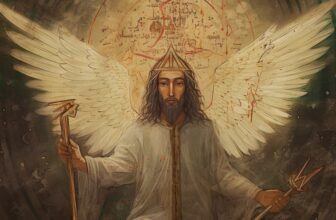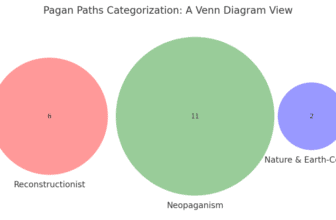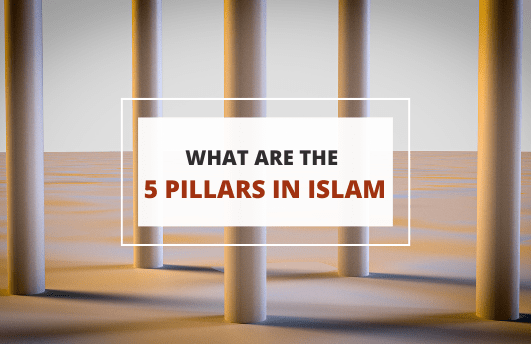
Table of Contents
Islam is the second largest book religion in the world, and it is notorious for being the only large religion to not practice any form of iconolatry, that is, the worshipping of images.
However, numbers are present in most Islamic traditions. The 72 virgins that are promised to Muslim men who die as martyrs, the five daily prayers, the lucky number seven, the number 786 which is sacred because it is the numeric form of a hymn to Allah, and the five pillars of the Islamic faith.
Here we will take a look at these five concepts, which offer an interesting introduction to one of the main religions in the world.
Where Did the Concept of Five Pillars Originate?
Islam is a religion that does not think of itself as the ‘only’ or ‘true’ religion but encompasses others as well.
This is why Muslims consider sacred the Torah, the Zabur (the Holy Book of David), and the New Testament. According to Islam, however, these books were the works of men, so they are incomplete and flawed.
According to Islam, the Prophet Muhammad received the revelation directly from God, so the Quran is thought to contain the complete version of God’s truth. In this book, five main precepts are described, which are to be followed by every true believer during their lifetime in order to gain access to heaven.
1. Shahadah – Declarations of Faith
There are two separate declarations in the shahadah: The first one states, ‘There is no god but God’, stressing the fact that there is only one true god. Muslims believe in a single divine reality, which is, as we have just discussed, shared with Jews and Christians.
The second statement, or declaration of faith, says that, ‘Muhammad is the messenger of God’, recognizing that the message of the Prophet was given to him by God Himself. The community of believers in Islam is known as Ummah, and in order to be part of it one must live up to these two declarations.
In this sense, it is worthy to remind the reader that Islam does not belong to any specific ethnic group or geographic area, but anyone can convert to this faith by following the shahadah and the rest of the pillars.
2. Salah – Daily Prayers
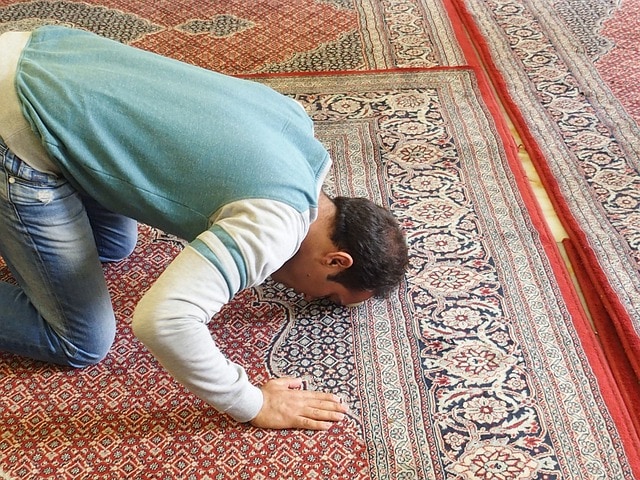
Muslims need to show publicly and physically their submission to God. They do this by engaging in prayer five times every day. They are performed just before dawn, at noon, in the afternoon, just after sunset, and in the evening.
The only one that is not strict regarding the timetable is the latter. It can be performed anytime between an hour after sunset and midnight. The five prayers must be made in the direction of Mecca. It is where the Kaaba, a sacred rock that serves as a hinge between the divine and the earthly world, is located.
The first Muslims used to pray in the direction of Jerusalem, but after some trouble with the Jewish people from Medina, they turned to Mecca for their daily prayers.
One important aspect of the prayers is that they must be made in a state of purity for which purpose they bathe before each prayer. Prayer usually consists of kneeling on a special rug and bowing while moving the hands up and down. It also includes chanting the opening chapter of the Quran. Then, believers prostrate themselves, touching the ground with their hands and their foreheads. They do this three times, after which they start the cycle again.
After completing several cycles, the believer sits on their heels and recites the shahadah, the two declarations of faith described earlier. The ritual ends with an invocation of peace.
3. Zakah – Alms Tax
Also spelled Zakat, the third pillar of Islam has to do with giving money away for charity. Although there are ‘tax collectors’ who represent the local mosque and collect the alms money, it can also be paid directly to homeless or extremely poor people.
The tax is set at one-fortieth of the worshiper’s money and properties. Not only this money helps feed the poor and the needy. It also creates a sense of community by making every member responsible for the rest.
4. Sawm – Fasting

The fourth in the five pillars of Islam is well-known to Westerners. It is the observation of the fast during the entire month of Ramadan. Or more precisely, during the thirty days of Ramadan, the ninth month of the Islamic lunar calendar.
This means Muslims are prohibited from eating food, drinking any fluids, and having sexual intercourse. This is done between sunrise and sunset, but at night they can nourish themselves. This is done in order to demonstrate one’s commitment to God. One is prepared to sacrifice all bodily desires to their faith in God.
Fasting also serves as cleansing both for the body and the soul. The hunger the believers feel during the whole month of Ramadan is a reminder of the hunger felt by the less fortunate members of society, for whom everyone is responsible.
5. Hajj – Pilgrimage
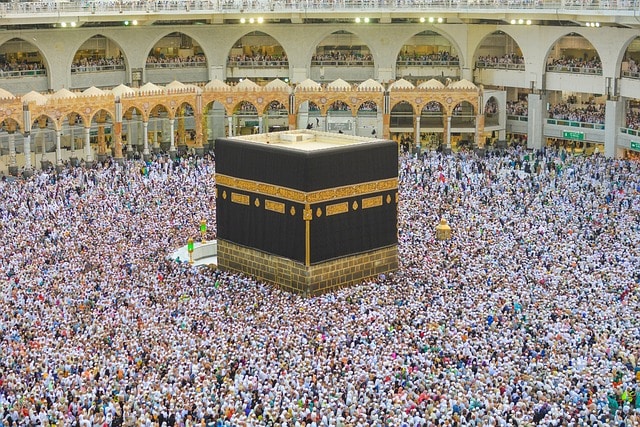
Finally, the last of the five pillars of Islam is the traditional pilgrimage to Mecca. It happens during the first ten days of the month of Dhu al-Hijjah. It is an obligation for every Muslim that is both physically and financially able to afford the trip.
Of course, Islam has become a worldwide religion. It has become less and less possible for every Muslim to fulfill this requirement. As mentioned before, Mecca is home to a sacred stone that is enclosed in a square-shaped tent.
Muslim pilgrims are required to circumambulate this stone known as the Kaaba. This is a part of the nine essential rites of Hajj. They must also wear an unsewn cloth known as ihram. It symbolizes the equality and humility of all Muslims and makes several stops along the way to perform certain duties.
These include spending a night at Muzdalifah, an open area on the route that connects Mina and Arafat. Throwing stones at three symbols of Satan, drinking water from the Zamzam well, and sacrificing an animal at Mina. They also pray at certain stops.
Another requirement is that the pilgrim concentrates during the entire journey on the remembrance of God and that they do not worry about earthly desires or problems. Muslims must travel and enter Mecca with a clear soul and mind, for they are in the presence of the divine.
Wrapping Up
One cannot but understand how deeply Muslims are engaged in their faith when looking at all the rites and concepts that unify Islam and are prescribed to every Muslim in the world.
Many of the five pillars of Islam relate to everyday life. The presence of God is constant in the lives of Muslims all over the world. This is precisely what makes it so interesting and complex.
If you’re interested in learning more, check out our articles on angels in Islam and Islamic symbols.




